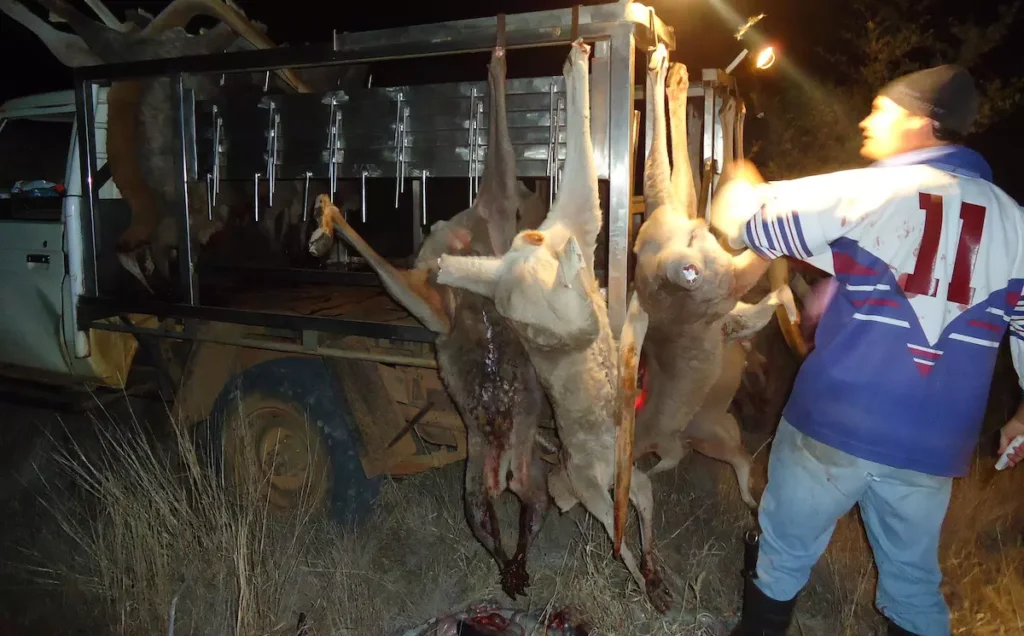Connecticut State Representative David Michel champions new policies to promote humane and conservation-minded commerce
Hartford, CT – The Center for a Humane Economy applauded State Representative David Michel, D- Stamford, for introducing legislation to stop Nike and other athletic shoe companies from sourcing kangaroo skins for a small number of their soccer cleat models.
California, the largest soccer market in the United States, already bans trade in kangaroo parts, forbidding Nike, Adidas and other brands from selling shoe models made from kangaroos. In Connecticut’s legislature, H.B. 5113, the Kangaroo Protection Act, would amend state statutes pertaining to commerce to “prohibit the sale, barter and offering for sale or barter of any dead kangaroo or product made from dead kangaroos.” The bill has been referred to the Joint Committee on Commerce as of January 10.
“Synthetic soccer cleats are readily available and easily rival or outperform those made from the skins of kangaroos,” says Wayne Pacelle, president of Animal Wellness Action and the Center for a Humane Economy and a native of New Haven.

“There’s no reason to kill two million kangaroos on the other side of the planet for soccer cleats that can be made with other fabrics,” Pacelle said. “With millions of Australian animals dead, the mass killing of kangaroos in their native habitats continues to supply major athletic shoe retailers who can easily use an alternative fabric for all of their offerings.”
“Nike and other shoe companies know that synthetic shoes sell far better than kangaroo-based shoes, but the companies persist in offering these shoes and at the same time tout their supposed animal-welfare and environmentally friendly policies,” said Jo-Anne Basile, executive director of Connecticut Votes for Animals, who worked with Rep. Michel on the bill introduction. “Commercial exploitation of the killing of millions of kangaroos, including joeys in their mothers’ pouches, is wasteful, inhumane, and a breach of the values of most Connecticuters.”
Each year, around 2 million wild kangaroos are gunned down in their native habitat to feed the kangaroo parts industry. An estimated 70 percent of all kangaroo skins sold are used to make soccer cleats.
As horrific as the shooting of millions of adult kangaroos is, the abuse visited on hundreds of thousands of baby kangaroos — joeys — each year is even worse. The defenseless young animals are yanked from the pouches and killed by blunt force trauma to the head after their mothers have been shot, often with a violent swing against the side of a car or other solid surface.
“Senator Michel is working to demonstrate that Connecticut can be a model when it comes to ethical commerce and benefit people, animals and the environment,”said Natasha Dolezal, deputy director of campaigns for the Center for a Humane Economy. “We are grateful to Rep. David Michel for taking on this fight and halting the commercial slaughter of iconic wildlife.”
In 2021, U.S. Reps. Salud Carbajal, D-Calif., and Brian Fitzpatrick, R-Pa., introduced the Kangaroo Protection Act, which would forbid the sale of kangaroo parts in the United States. The Center for a Humane Economy and its partners are working to see that California’s law is properly enforced, and it makes sense for Connecticut to follow, as the state’s passion for the sport has grown, especially in the past few years with the founding of Hartford Athletic, the American professional soccer team based in Hartford.
In an assessment of scoring from all matches played in the 2022 World Cup, players wearing shoes made from human-made fabrics dominated the scoring, with 164 goals. Players wearing shoes made from kangaroos scored only eight goals, revealing that the world’s players, primarily as a matter of performance, have been shedding the skins of kangaroos.
Nike, Adidas, Mizuno, and other athletic wear companies offer dozens of models made from the skins of the marsupials who are one of the iconic mammals of Australia, while also offering a far larger line of shoes that do not require killing native wildlife in mass numbers.

